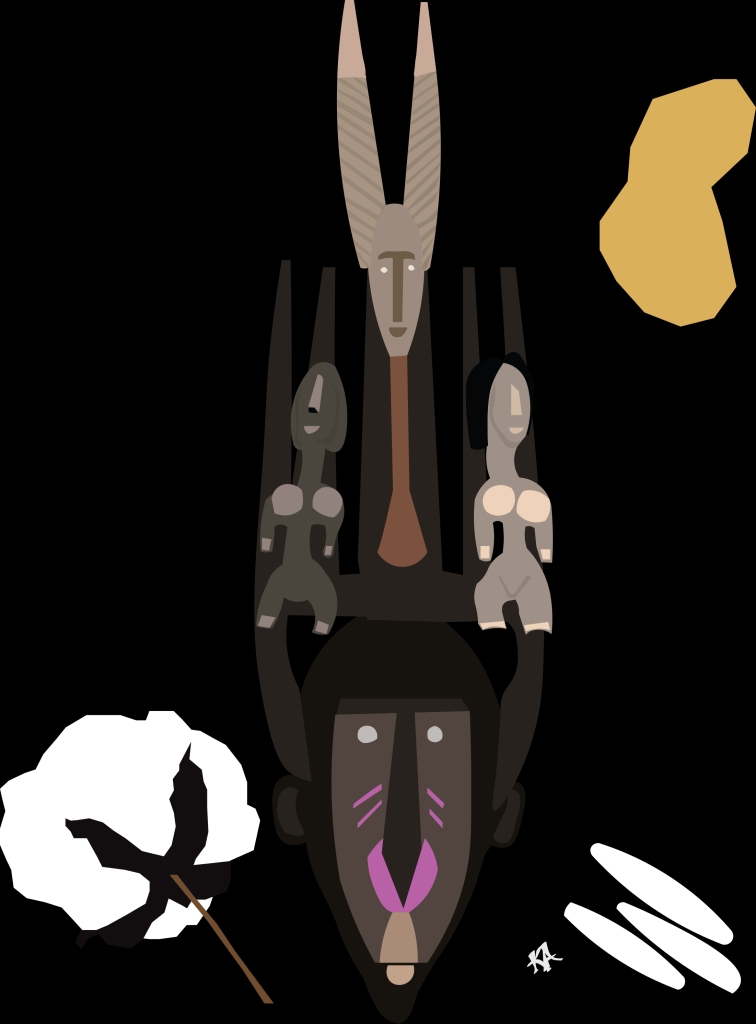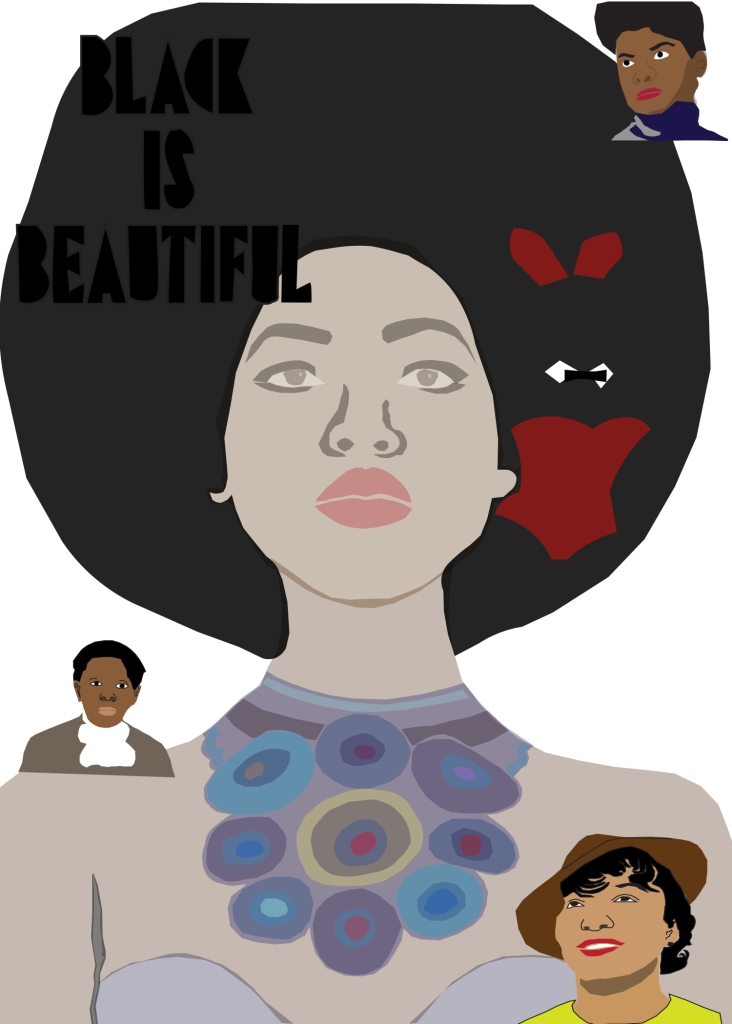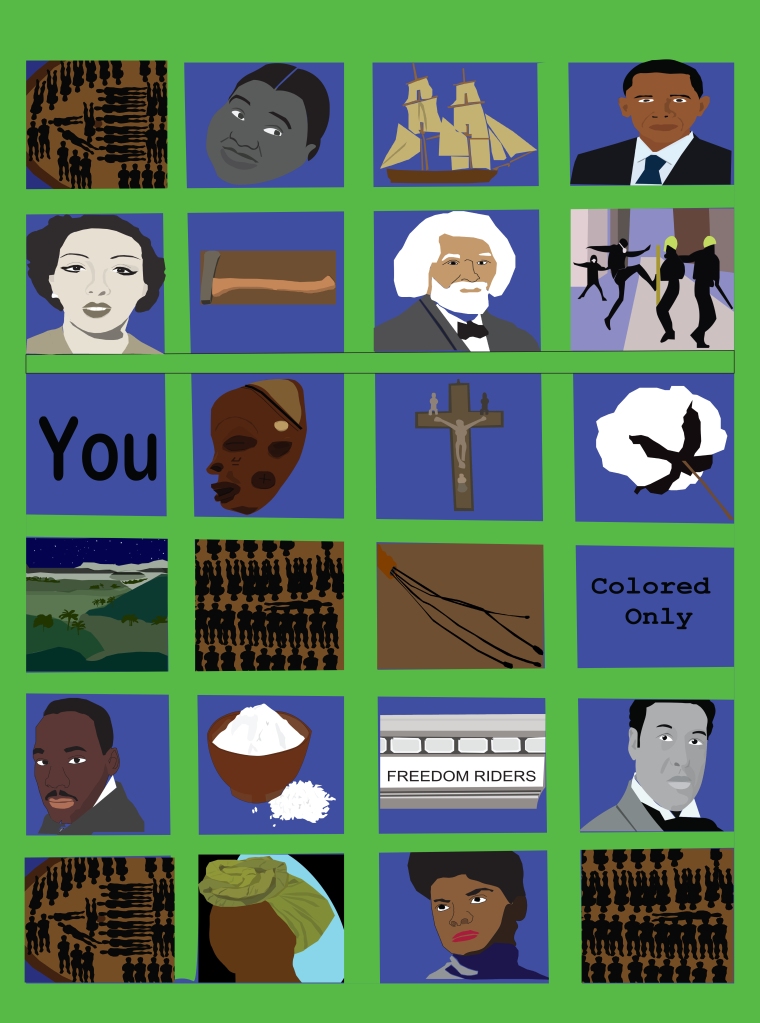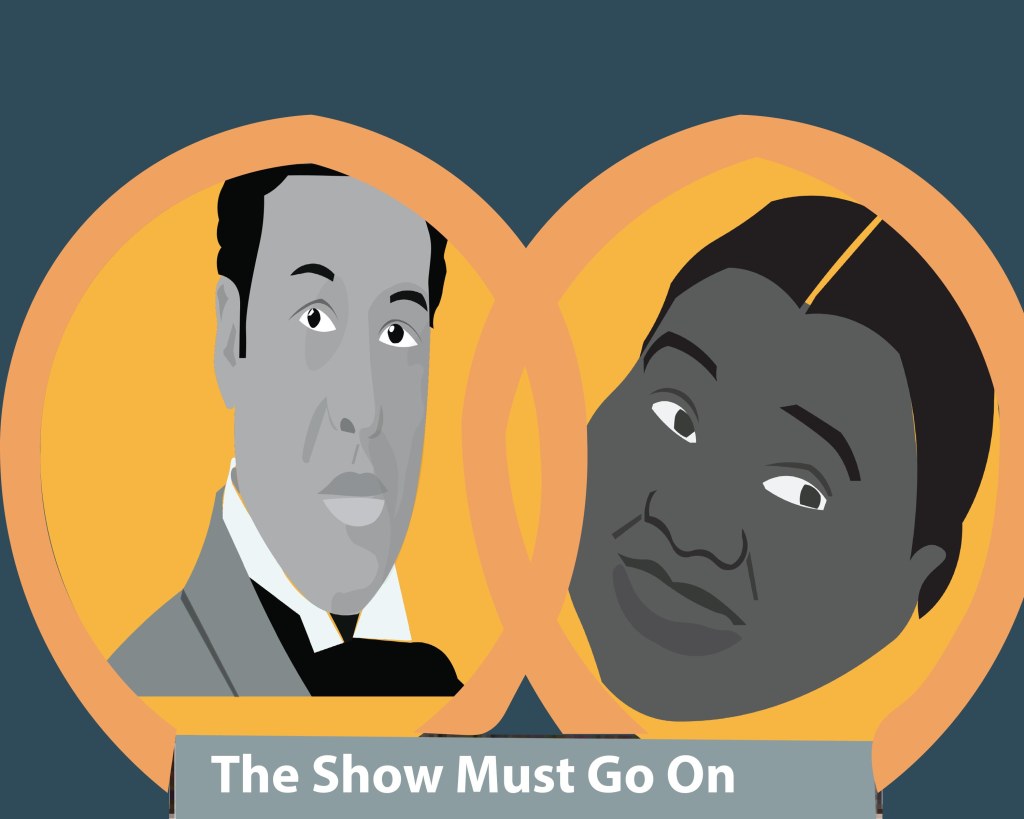This is the Art Of The Month
January

February

March

April

May

June

July

August

September
If Kindness Were A Person, I think this is what it would look like. I saw a Facebook post where someone listed the accomplishments of Josiah Henson. It spoke to me.
For those who do not know this face, this is the man who inspired Harriet Beecher Stowe’s Uncle Tom’s Cabin.
Henson was born into slavery in Maryland. His father was sold off when Henson was a child. The young boy’s memory of his father was the day he was beaten with a whip and had his ear cut off. The rest of his siblings were sold off, and he fortunately was able to go with his mother.
As Henson worked as a slave, he became a preacher and good businessman who was trusted by his owner. Isaac Riley, the slave owner abused the young boy physically and treated him harshly.
Despite the hardship Henson learned all he could about business and God’s word. This enabled him to travel around and preach while handling business matters for his owner. Henson tried to buy his freedom with money he had earned preaching, but Riley swindled him and tried to sell him down south.
Circumstances smiled on Henson, as the young man who was to take him to sell came down with malaria. A kindhearted Henson cared for the young man so he wouldn’t die.
In 1830 Henson escaped to Canada with his wife and two youngest children. He started a freedman settlement called the British American Institute. It became one of the final stops on the Underground Railroad. Henson guided 118 slaves to freedom.
With the help of Samuel Atkins Eliot, Henson wrote the story of his life, The Life of Josiah Henson, Formerly a Slave, Now an Inhabitant of Canada, as Narrated by Himself, which was published in 1849.
On one of Henson’s trips to America he was invited to visit an American woman who wanted to hear about his life in slavery. There he met Harriett Beecher Stowe and told of some of the things he had experienced.
Over the next couple of years, she wrote a story of her own. It first ran as stories in the National Era on June 5, 1851. Later it was published as a book, in two volumes. It became a hot topic selling more than 300,000 copies (And Stowe did not share any of her profits with Henson.)
After the Civil War Henson toured the US on a 100-city tour. He also met with Queen Victoria at Windsor Castle and years later met with President Rutherford B Hayes at the White House.
He died in 1883.
(This information came from The Smithsonian Magazine and Wikipedia)

October
Participating in something you have no control over requires much control.
Bert Williams (1874-1922) was born in the Bahamas. In 1918 the New York Times wrote he was one of the greatest comedians in the world. Williams was also at one time was one of the highest paid performers in vaudeville and on Broadway. He and his team were one of the first African Americans to perform on Broadway, in a show titled Dahomey, a musical in 1903.
Because of his race, he was usually the solo African American performer in a vaudeville show, which meant he travelled, ate and slept separately from the Caucasian performers. He would be alone and separated from everyone else. A white supremist groups threatened theater owners to only have one black performer per show. When he signed with Ziegfeld’s Follies, Caucasian performers demanded he be fired, but management refused. He became so popular that others wanted to work with him.
Hattie McDaniel (1893-1952) was an African American actress and holds the distinction of being the first woman of color to win an Oscar. She won for the role of Mammy in Gone with the Wind. She appeared in over 300 films and was also a singer.
Even though she made enough money to live well, she found that it did not stop discrimination. She almost didn’t get to attend the Oscar ceremony where she won because it was segregated and didn’t allow African Americans in. She also had to file lawsuits to stay in her neighborhood because deeds restricted African Americans from purchasing there and was denied the right to be buried in the cemetery of her choice because race restrictions. She didn’t allow other people’s rules to allow it to limit her.
It took incredible self-control to continue to work and perform routinely. It took discipline to continue to give great performances every time. It took heart not to give up and go do something that was more just.

November
I am most grateful for those amazing writers and artists that have share their words with the world over the past couple of centuries. Even though they have not been lauded, people of color have been telling their truths for as long as we have been in the world. These truths are powerful, encouraging, and enlightening.
Alexander Dumas, Phillis Wheatley, Simon of Cyrene, Samuel Taylor Coleridge, Paul Lawrence Dunbar, Priscilla Shirer, Nat Turner, James Baldwin, Cora Jakes Coleman, Maya Angelou, Lorraine Hansberry, Ntzoke Shange, August Wilson, Nelson Mandela, J California Cooper, Lecrae.

December
The Journey
These people took a journey to find something they had only heard in folklore. But something compelled them to move forward. The thing was a star and they began to follow it.
It led them far from home.
The Bible tells us they came from the East and were called wise men. Imagine the smartest people in the world at the time were following an astronomical phenomenon. Whatever was at the end of it had to be life changing.
Christian folklore sometimes refers to these wise men as kings using Isaiah 60 and Psalm 72. They also give them a racial identity making one from China, or India or Persia or even Africa.
Regardless of where they were from. They went somewhere. The star led them on a journey that changed everything.
